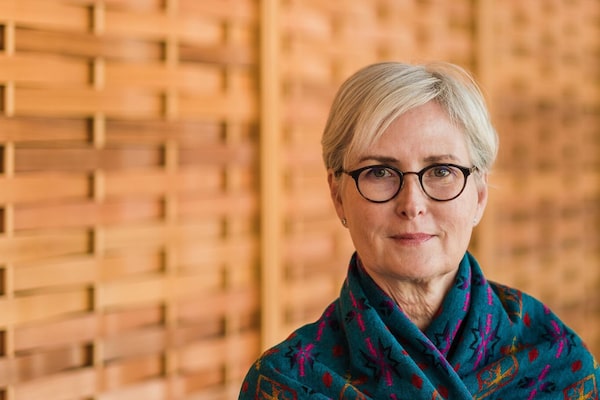
An investigation by the CBC casts doubt on claims that Mary Ellen Turpel-Lafond – a widely respected scholar, former judge and former B.C. Representative for Children and Youth – is a treaty Indian of Cree ancestry.Handout
The University of British Columbia is standing by Mary Ellen Turpel-Lafond after a report that raises questions about the prominent law professor’s claims to Indigenous ancestry.
An investigation by the CBC published Wednesday casts doubt on claims that Prof. Turpel-Lafond – also a widely-respected scholar, former judge and former B.C. Representative for Children and Youth – is a treaty Indian of Cree ancestry.
“Indigenous identity was not a criterion” for the positions Prof. Turpel-Lafond held at the university, said Matthew Ramsey, UBC’s director of university affairs.
“[Prof. Turpel-Lafond’s] identity is her own and the university is not going to comment on it.”
The Union of BC Indian Chiefs is expected to release a statement on Thursday, but its president, Grand Chief Stewart Phillip, told The Globe and Mail on Wednesday that he is supporting her as she faces a “disgusting witch hunt.”
“Without question, I am really upset about these public smear jobs that arise from time to time with respect to individuals that have contributed a tremendous amount of support for our Indigenous communities, Indigenous women and children and so on and so forth,” Mr. Phillip said.
CBC reported that Prof. Turpel-Lafond’s claims of Indigenous ancestry, along with details of where she grew up and her academic accomplishments, are inconsistent with publicly available documents. Prof. Turpel-Lafond says she is Cree because her father, William, was Cree, for example, but the report said that genealogical records show that her grandfather was of Irish, German and American ancestry, while his wife was born in England to British parents.
CBC asked Prof. Turpel-Lafond how her father could be Cree given that her parents had no obvious Indigenous roots, and reported that she declined to say who she believes her father’s biological parents were, but hinted at family secrets.
“My dad was born during my grandfather’s time at Norway House. I was raised to not embarrass, shame or cause harm to families, and not to interfere,” Prof. Turpel-Lafond said in a statement to the CBC which has been posted online.
“I respect my parents and all members of my family and I will never call anyone out. Growing up we did not question biological parentage.”
Prof. Turpel-Lafond did not respond to a request for comment from The Globe on Wednesday.
Prof. Turpel-Lafond joined the University of B.C. in July, 2017, as an adjunct professor in the School of Social Work, then started as a tenure professor at the Peter A. Allard School of Law in January, 2018. She was appointed director of the Indian Residential School History and Dialogue Centre (IRSHDC) in April, 2018, with her term ending June, 2022.
Mr. Ramsey, at UBC Media Relations, said she made significant progress to advance the goals and mandate of the IRSHDC, and built core programming while putting a strong focus on honouring residential school survivors and Indigenous communities.
“Mary Ellen Turpel-Lafond’s hiring and considerable achievements at IRSHDC are thanks to her prior experience as a lawyer, judge and children’s advocate as well as her deep connections with Indigenous peoples across Canada,” Mr. Ramsey said in an e-mail late Wednesday.
Among her work advocating for Indigenous issues, Prof. Turpel-Lafond had worked with the UBCIC on several campaigns over the past couple years, including intervening in the human rights tribunal case of a Heiltsuk First Nation man and his 12-year-old granddaughter who were handcuffed in 2019 outside a downtown Vancouver Bank of Montreal after being wrongly accused trying to open a new account with fraudulent Indian Status card.
In November, 2020, she released the report In Plain Sight, which found “widespread and insidious problem” with Indigenous-specific stereotyping, racism and discrimination in British Columbia’s health care system. She kept the pressure on one year later, saying in a progress report that “little, if any” movement had been made on her 24 recommendations.
The CBC report also noted that dozens of media reports from the past 30 years stated that Prof. Turpel-Lafond was born and/or raised on the Norway House Cree Nation in Manitoba, for example, while public records and yearbooks suggest she was born in Niagara Falls.
CBC reported that Prof. Turpel-Lafond, in an e-mail, refused to answer whether she was born and raised in Norway House or Niagara Falls.
“I don’t check every media story about me or my experience/history, nor am I accountable for how media or others portray me,” she is quoted as saying.
 Andrea Woo
Andrea Woo Mike Hager
Mike Hager